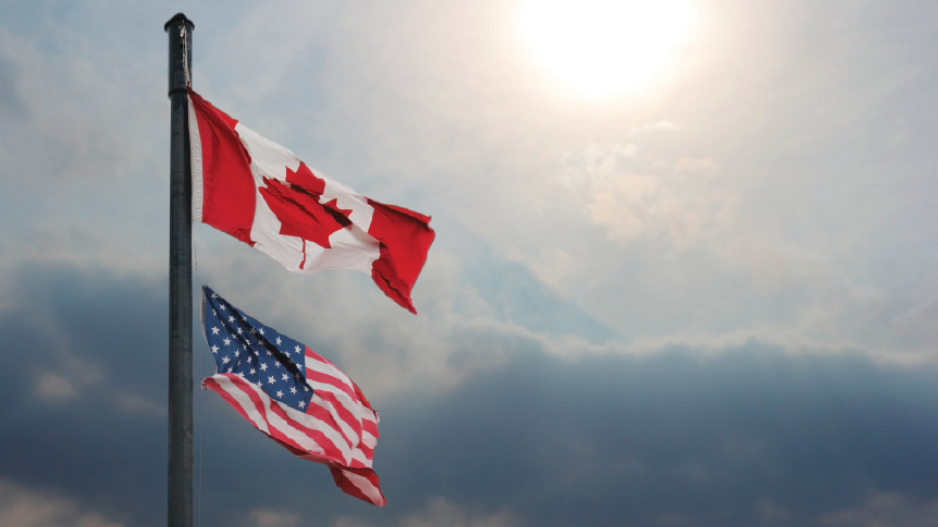It’s been almost exactly four years since Bruce Heyman departed his post as the American ambassador to Canada following U.S. President Donald Trump’s inauguration.
Speaking to the Greater Vancouver Board of Trade Tuesday (November 17), he used just one word to sum up his feelings about the current relationship between the two countries: “Stressed.”
The ex-diplomat, currently residing in Chicago, made the remarks during a virtual panel focused on future opportunities between Canada and its southern neighbour with the impending inauguration of U.S. President-elect Joe Biden.
“When we left in January of 2017, I believed the relationship was in as good a place as it had been historically,” Heyman said.
“Over the last four years we've actually seen a president not value the relationship for what it is and what it has been historically. And while we'll have differences over time, the president [Trump] was completely transactional in his relationship, looking for very specific outcomes, as opposed to understanding the depth and breadth of the relationship overall.”
The start of the Trump presidency was initially marked by a shake-up in trade relations, with the U.S. imposing tariffs on Canada over what it claimed to be national security concerns.
The countries also faced testy negotiations over a replacement for the North American Free Trade Agreement (NAFTA), which eventually resulted in the U.S.-Mexico-Canada Agreement (USMCA) or CUSMA as it’s sometimes called in Canada.
“I think there's a consensus view in Washington that trade with Canada, trade across the North American platform is imperfect in the best of times, but what we have is a pretty damn good thing,” said fellow panellist James Moore, a senior business adviser at Dentons law firm and a former Conservative industry minister.
He added Canada would benefit on the trade file from not having U.S. Sen. Chuck Schumer, the current Senate minority leader, as the Senate majority leader.
Heyman said he hopes a Biden presidency will bring about a strong U.S. national pandemic strategy that could lead to international borders reopening to non-essential travel.
For B.C., the prospect of reopened borders would give the ailing tourism sector a much-needed lift.
But Angus Reid Institute president Shachi Kurl, who spoke alongside Heyman during the virtual panel, said most Canadians remain wary.
“Canadians, they're under no illusions around how bad this is in the United States and there is no rush to normalize the flow of themselves or their capital into the U.S.,” she said.
Moore said Canada-U.S. relationship remains surprisingly strong “all things considered” but it will take domestic initiatives to ensure they don’t weaken.
Canada should keep its head down, he said, and avoid becoming a target for isolationists in the Democratic party and economic nationalists in the Republican party.
“And sector by sector, region by region we're engaged in supporting Canadian businesses, [building] those roots deep into the ground of cross-border economic engagement that will be very, very hard to tear away ever again,” Moore said.
He’s also imploring premiers, cabinet ministers, consuls general and other diplomats to regularize visits to the U.S. as well as business groups within those borders.
Meanwhile, Moore said that the status of the Keystone XL pipeline will continue to be a pressure point for Canada-U.S. relations under a Biden presidency.
The president-elect had promised during his campaign to reverse a permit for the Keystone XL pipeline previously granted by Trump.
The on-again-off-again project would see a pipeline running from Alberta south to refineries in the U.S.
Moore said Canada’s economy will struggle to recover without the recovery of its own energy sector.
“I would hope that he [Biden] would almost kind of do a bait-and-switch, which is reintroduce America back to the Paris [climate] accords, make some kind of a commitment about carbon neutrality and a timeline of some reasonable plan to get there that probably won't be met, but we'll get America going in a better direction. And then on the other hand, be open to revisiting this commitment on Keystone XL,” he said.
Heyman, the former diplomat, said it’s possible Biden’s position on the pipeline isn’t set in stone but he’s taking the president-elect at his word for now.
“Let's see when we get an ambassador in the ground, let's see what happens when industry is involved — a lot of things can evolve in those conversations and it may end up being just exactly where we are today. But, you know, he's not president yet,” he said.




